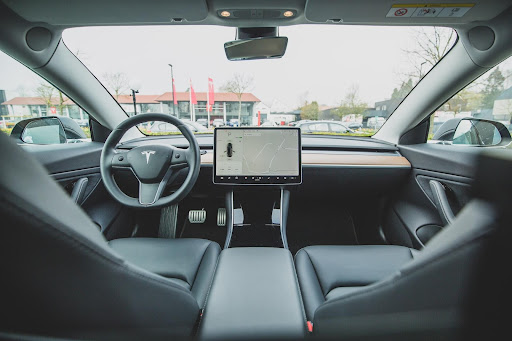One of the handiest features for EV owners is the ability to charge their vehicles at home. They don’t have to cope with crowded gas stations or exorbitant petrol costs. The cost of charging an EV varies depending on where you reside; however, energy does not often see sharp price increases.
Not everyone has the necessary space for charging at home. Fortunately, any EV driver with access to a power outlet may charge their vehicle. Most wall outlets may be reached with an extension cord, but are extension cords compatible with electric cars?
Can I charge my electric car using an extension lead?
Yes, you can use an extension cord to charge your electric car; however, a 20-amp extension cord is preferred. If the extension cable will be exposed to the elements, it must be waterproof and have an outside usage rating.
A 20-amp extension cord is recommended because anything lower can overheat charging an electric car. But remember that most extension cords aren’t meant to be used for as long as it takes to charge an electric vehicle.
You can travel about 8 miles in 60 minutes by plugging into a 2.3kW 3-pin outlet, which may be plenty to drag you to a public charger. Unless you start at 90%, it isn’t strong enough to recharge an electric car battery overnight.
Guidelines for charging an electric car with an extension lead
The following tips help you with charging your electric vehicle using an extension cord:
- Never use a multi-socket extension lead in the home.
- The extension lead must be waterproof if exposed to external elements.
- Ensure the extension lead is in good condition and that the plug socket it is plugged into is in good condition before using it.
- To distribute heat effectively, you must completely unroll an extension cord on a reel.
Dangers of Using an Extension Cord to Charge
Because charging an electric vehicle consumes significant power, connecting an extension cord to the charging cable may cause it to overheat because it seeks to transmit more energy than it was designed to carry and the risk of fire increases. Overheating cords can melt plugs and receptacles, and the fire risk increases when left unattended overnight or while you are away.
Electric shock is another potential hazard. An EV charging cable becomes more volatile when connected to an extension cord. The stability of this power transfer is jeopardized by rerouting the power supply from your electrical socket through an extension. Inserting and withdrawing the plug becomes a more dangerous procedure.
Can I charge overnight with an extension cord?
Yes, you can charge overnight, but you must use a 13A extension lead that is wholly uncoiled. From 8 hours of charging, you will gain approximately 60 miles of range.
Get an electrician to install a Commando socket or an intelligent charger for faster-charging speeds. 16A Commando outlets charge at 3.6kW (15 miles per hour), while 32A charges at 7.4kW (30 miles per hour).
Electric car charging cable types
1. Mode 1 charging cables
An extension cord and a standard connector connect an electric vehicle to a conventional AC socket outlet using a Mode 1 connection. Due to the lack of communication, the automobile and charging port provide no special safety features or shock prevention.
This form of charging is helpful for small electric vehicles such as e-bikes and scooters, but it is not considered safe for electric cars and is illegal in many parts of the world.
2. Mode 2 charging cables
When you buy an electric vehicle, it usually comes with a Mode 2 charging cable as standard. These wires connect to your electric car on one end and a typical household outlet on the other. The line also includes an In-Cable Control and Protection Device (IC-CPD), which controls and communicates with the regular wall plug and protects it.
While this charging method is undeniably convenient because most residential outlets only provide up to 2.3 kW of power, charging can take a lengthy time. It can also be hazardous if done incorrectly. As a result, it is recommended only utilize this charging cord in an emergency.
3. Mode 3 charging cables
Mode 3 cables are currently the most widely utilized while charging an electric vehicle worldwide. This charging connection links your car to a designated electric vehicle charging point, such as those found in companies and workplaces, houses and residential areas, and commercial and public parking lots.
4. Mode 4 charging cables
The first three modes differ from Mode 4 because they supply the car with alternating current electricity transformed by an onboard AC/DC converter. On the other hand, mode four charging cables change the electricity before it is transmitted to the vehicle and are explicitly created for DC charging.
Fast charging is the term used to describe the dramatically reduced charging periods possible when using DC to power an electric vehicle. However, this charging method sends far more power directly to an electric vehicle’s battery; the cables must be constantly linked to the charging station and are frequently liquid-cooled to withstand the heat.
Bottomline
If you use the correct extension lead, charging an electric car using an extension lead is entirely safe. A granny charger extension lead designed for the job or a 20-amp extension cord rated for outdoor use can be used.
Never use a home multi-socket extension lead, and never use an extension lead or socket if you worry about its safety.








